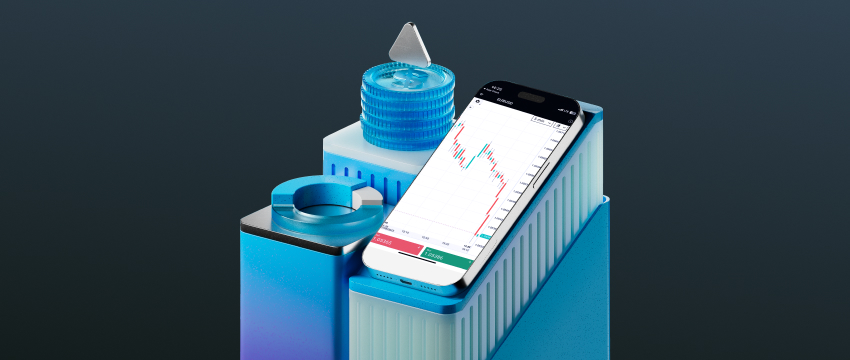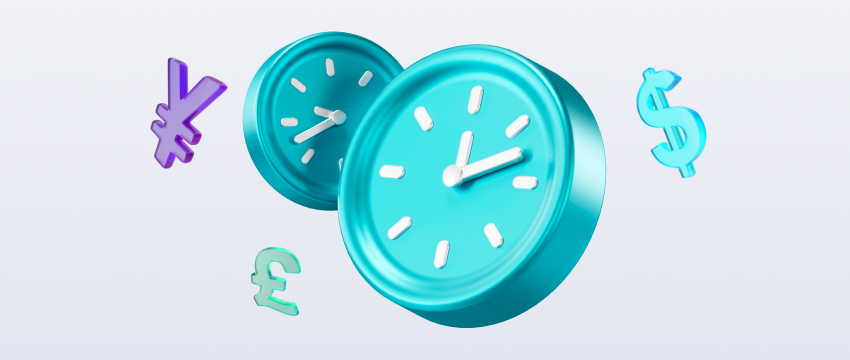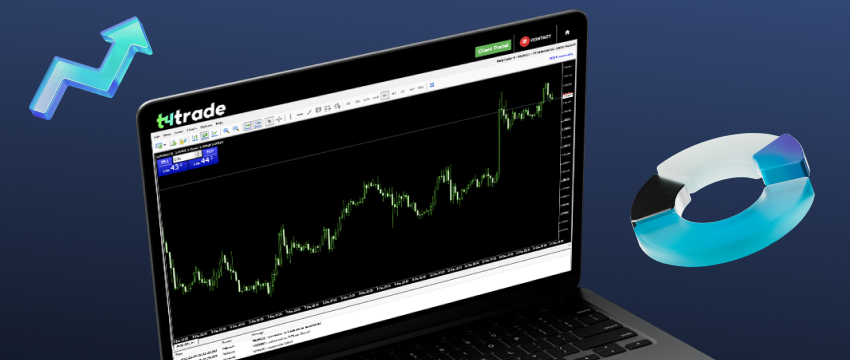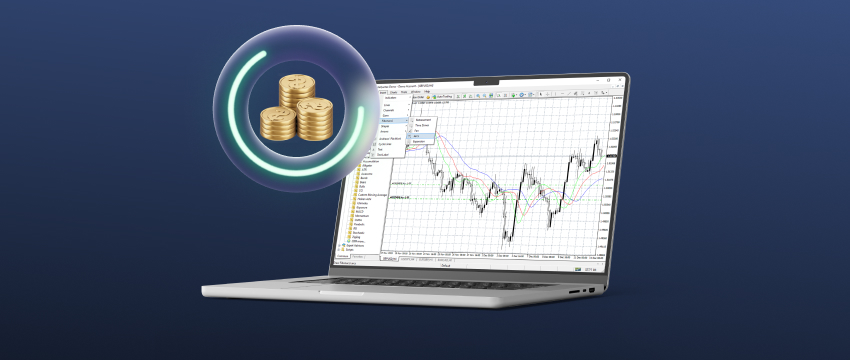Overtrading is one of the most common problems traders face. It usually occurs because they place too many trades, enter the market without clear reasons or chase losses. This type of behaviour often results from emotional reactions such as FOMO, greed, fear or impatience.
Overtrading increases transaction costs, exposes accounts to unnecessary risks, and can negatively impact trading performance in the long term. By understanding what causes overtrading and applying effective strategies, traders can gain control, stay consistent, and protect their capital.
In this article we walk you through the main ways to control overtrading. We go into what overtrading is, how it works as well as what causes it.

Understanding what overtrading is
Overtrading is more than just taking too many positions. It usually happens when traders enter without a clearly designed plan or do not stick to their strategy.
Some forex traders enter positions because they are bored, others because they think they can recover losses . All these usually lead to poor decisions, higher levels of stress and unnecessary financial exposure.
There are different ways in which overtrading can appear. For instance, day traders might open numerous positions in one day, whereas swing traders may extend transactions without any reason or get into a position again too quickly after losing. Recognising these patterns early on may prove to be a rewarding trading journey in the long term.
What causes overtrading?
Trading emotions play a key role in overtrading. FOMO, or fear of missing out for example, can lead traders open trades that do not meet their criteria.
Greed pushes traders go after profits beyond the limits they planned. Overconfidence after a series of winning trades can also make traders take unnecessary risk.
Emotional overtrading often increases during periods of market volatility. Unexpected price changes or news releases can cause anxiety or excitement, which leads traders to make impulsive trading decisions.
There are many studies showing that managing emotions is just as important as technical analysis when it comes to reducing overtrading.
Avoiding common trading traps
Common traps that lead to overtrading include chasing losses, which is one of the most frequent mistakes. Trying to recover these losses quickly often leads to additional losses.
Entering trades without confirmation or ignoring daily limits and reacting based on emotions are some other common traps. So is relying on a single indicator. Effective traders typically wait for confirmation from different signals before making a trade.
Knowing these common trading traps and sticking to your trading plan helps avoid trades that you do not really need while simultaneously maintaining consistency.
Advantages of controlling overtrading
Being able to manage overtrading can potentially increase your revenue, reduce your negative trading emotions and help you build confidence. By focusing on quality trades, you can lower costs, conduct deeper analysis, and achieve more consistent, effective results.
This will also help you think clearly. Freed from the pressure of constant trading, they can evaluate the market calmly and identify stronger opportunities. Staying disciplined becomes a strong advantage, especially when the market is unpredictable.
Keeping a solid trading plan & a trading journal
A solid trading plan that is clearly designed is vital for controlling overtrading. Trading plans should specify entry and exit points, size of positions and daily or weekly trade limits. Having a plan allows traders filter out rushed trades and focus on setups that provide higher probabilities.
For instance, there are traders that choose to enter only when a currency pair breaks a key support level with strong confirmation and usually limits trades to 3, daily.
This way, each trade is deliberate, and the emotional impact is reduced along with unnecessary market exposure. Keeping a trading journal also enables traders to reflect on previous decisions.
Every entry should include the rationale behind a transaction, market conditions and emotional state while in the trade. If you analyse all these factors, you can spot patterns, recognise possible mistakes and improve successful strategies.
If a trader for instance, notices a tendency to re-enter position too fast after losses, is the first step in correcting it. In the long term, keeping notes enhances self-awareness, controlling emotions and trading with discipline.

Importance of risk management & patience
It’s critical to learn risk management techniques to prevent overtrading. Traders should determine their risk appetite, or how much they want to risk on each trade and use tools to consistently protect their capital.
High leverage is a double-edge sword as it can lead to losses too. Lowering leverage when the market is very unstable or staying away from risky assets can help reduce losses.
It is also a good idea to trade assets that are easy to buy and sell as they usually have lower costs and smaller risks.
Not all market movements require action. Those traders that wait for high-probability setups are not so likely to enter rushed transactions.
Being disciplined involves following and sticking to your trading plan, even while there is a period of excitement or fear. Stepping back from the screen for a little while and taking short breaks are also very useful.
Hours of market monitoring can lead to emotional trading and stress. Traders who take short breaks are better able to concentrate, decompress and make decisions based on logic rather than emotion.
Which are the advantages of education & continuous learning?
Knowledge and lifelong learning are important components. Less mistakes are likely to be made by traders who comprehend how the market behaves, including technical and fundamental analysis as well as understand all about trading psychology.
There are numerous forex brokers online that offer a wide variety of educational material that help in enhancing your trading knowledge.
Learning how to manage risk or all about the right timing to enter a trade, allows traders to make calm, logical decisions instead of acting on emotion. Knowledgeable traders approach the market with a plan, and it is less possible for them to overtrade.
As markets are constantly moving, it is important for traders to keep checking their records and see how their strategies perform.
Looking back at previous trades can help you stay focused and make more informed trading decisions even when the market gets chaotic.
If you are open to feedback, learn from your results but from other traders’ experience as well, it is more possible to invest consistently and avoid falling into the same mistakes again.
Bottom line
Overtrading is a common trading issue that can be easily fixed with self-control, discipline, patience and strategic planning. When recognising emotional triggers, following a structured approach, using solid risk management tools and reflecting on previous trades there are more chances of better control.
Always put quality first, stick to the trade limits set and practise patience.
This way, traders protect their capital and improve their performance in the long term. With steady effort, learning and the right knowledge, traders can turn overtrading into something they can control.
Effective trading is not about placing numerous transactions. It’s about making thoughtful, consistent choices.
Khước từ trách nhiệm: This material is for general informational and educational purposes only and should not be considered investment advice or an investment recommendation. T4Trade is not responsible for any data provided by third parties referenced or hyperlinked in this communication.




